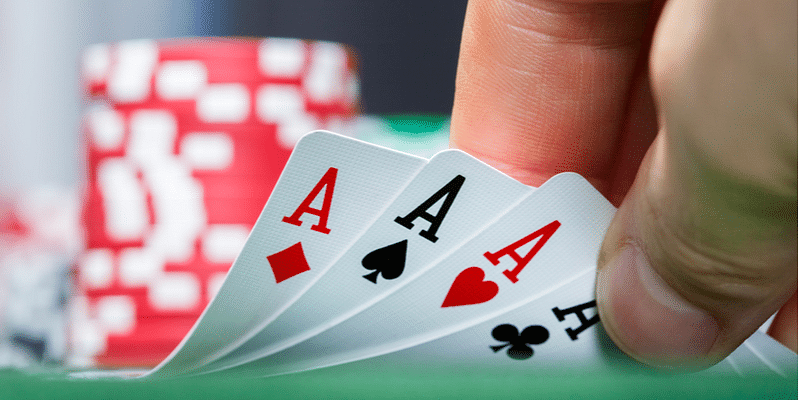
The CGST (Amendment) Act, 2023, effective from October 1, 2023, reinforces the taxation of online gaming in India, definitively imposing a 28% GST rate, irrespective of whether the game is one of chance or skill. The amendments, stemming from the recommendations of the GST Council’s 51st meeting, reshape the statutory landscape and aim to bring clarity to the taxability of various activities, including online gaming.
The CGST (Amendment) Act, 2023, accompanied by the Central Goods and Services Tax (Third Amendment) Rules, 2023, ushers in a new era of taxation for online gaming.
Key amendments include:
Changes to Schedule III: Schedule III of the CGST Act, 2017, which prescribes transactions that are not goods or services, now explicitly excludes certain ‘actionable claims’ such as online money gaming, betting, casinos, gambling, horse racing, and lotteries.
Definition of terms: The amendments introduce precise definitions for ‘online gaming’ and ‘online money gaming,’ providing a framework for the tax treatment of these activities.
Mandatory registration: Suppliers of online money gaming services based outside India are now obligated to register. Non-compliance may result in the blocking of websites or deletion of applications for failure to pay taxes and obtain registration.
Taxable value determination: Rule 31B of the Central Goods and Services Tax Rules, 2017, stipulates that the taxable value is the total amount paid or deposited with the supplier. Notably, any amount refunded by the supplier cannot be deducted from this value. Theoretically, claiming a refund in case of non-usage of the deposited amount, subject to certain safeguards and conditions may be lodged by the player.
Clarity objective: The statement of objects and reasons accompanying the CGST (Amendment) Bill, 2023, emphasises providing “clarity regarding taxability of casinos, horse racing and online gaming.” This seemingly grants the governments and tax departments the authority to retrospectively demand GST from online gaming companies for past periods.
Retrospective GST demands
Rule 31A stipulates a valuation mechanism for actionable claims related to betting, gambling, or horse racing, setting the GST rate at 100% of the face value of bets placed—effective from September 23, 2018.
Subsequent to the 50th meeting of the GST Council, there was an apparent shift in approach, with the recommendation to levy GST on the full value of bets placed. However, based on the 51st meeting’s recommendations, this was further modified to focus on the amount deposited with suppliers, rather than the total value of each bet.
This alteration emboldened the revenue authorities to issue demand notices to online gaming companies, alleging short and non-payment of tax under the existing valuation rules. News reports suggest that these demand notices have collectively amounted to an alleged tax evasion of Rs 1 lakh crore by online gaming companies for the past period.
In response, companies, including Sports Technology, the operator of the Dream11 fantasy sports app, have filed writ petitions challenging the constitutional validity of Rule 31A, Rule 31B, the levy of GST on games of skill, and contesting the retrospective demands.
<figure class="image embed" contenteditable="false" data-id="531130" data-url="https://images.yourstory.com/cs/2/f02aced0d86311e98e0865c1f0fe59a2/online-gaming-1595435856946.png" data-alt="online gaming" data-caption="
Photo: YS Design
” align=”center”> Photo: YS Design
.thumbnailWrapper
width:6.62rem !important;
.alsoReadTitleImage
min-width: 81px !important;
min-height: 81px !important;
.alsoReadMainTitleText
font-size: 14px !important;
line-height: 20px !important;
.alsoReadHeadText
font-size: 24px !important;
line-height: 20px !important;

Taxation of casinos
The casino sector, inherently categorised as a game of chance, is not exempt from the GST controversies. While online gaming underwent clarifications and changes, casinos faced challenges in determining the value of supply, especially concerning the computation of each bet placed by users.
The retrospective nature of the valuation mechanism, introduced on January 1, 2018, posed challenges for the levy of GST from July 1, 2017 to January 22, 2018, as no valuation mechanism was in place during this interregnum. Despite the difficulties in valuation, GST authorities initiated the issuance of show cause notices to recover GST on the face value of bets placed during this period.
Delta Corp Ltd, a prominent player in the casino sector, has responded by challenging the constitutional validity of Rule 31A and the show cause notices. Legal proceedings are underway before the Sikkim High Court and the Bombay High Court at Goa.
State legislations
The constitutional distribution of powers designates ‘Betting and gambling’ as a state subject under Entry No. 34 of List II of the Seventh Schedule. The introduction of Article 246A empowers the Parliament to enact laws related to GST on goods, including ‘actionable claims.’ The new tax regime (GST) does not discriminate between online gaming based on skill or chance.
However, the response from states diverge significantly. States like Sikkim and Nagaland recognise and regulate skill-based online gaming, subject to reasonable restrictions. On the contrary, states such as Telangana and Tamil Nadu have taken a stringent approach, imposing severe restrictions or outright bans on online gaming entities. This has resulted in the obliteration of the traditional legal distinction between games of skill and games of chance.
Sikkim Online Gaming (Regulation) Act, 2008: Enacted to control and regulate online gaming in electronic or non-electronic formats, issuing licenses for online gaming and sports gaming platforms. The scope includes any game of chance or a combination of skill and chance, encompassing poker, roulette, blackjack, and more.
Nagaland Prohibition of Gambling and Regulation of Online Games of Skill Act, 2016: This statute specifically defines ‘game of skill’ and excludes betting or wagering on games of skill, requiring licenses for providing such games. The legislation distinguishes online gaming platforms from traditional gambling.
Telangana State Gaming Act, 1974 (as amended by Telangana Gaming Amendment Act, 2017): Amendments introduced to address the surge in gambling activities impose hefty penalties on anyone operating common gaming houses or online gaming platforms. The legality of these amendments is under challenge before the Telangana High Court.
Tamil Nadu Prohibition of Online Gambling and Regulation of Online Games Act, 2022: Enacted to prohibit online games, regardless of whether they involve skill or chance. Interestingly, concerns raised by the Finance Minister of Tamil Nadu during the GST Council’s 51st meeting were addressed in the CGST Amendment Act, clarifying that the tax shall be levied without prejudice to any restrictions imposed by the State.
The intricate web of state and central regulations, coupled with legal problems, underscores the complex and frequently evolving nature of the regulatory environment and taxation of the online gaming sector in India. The ongoing legal battles, particularly the writ petitions challenging the constitutional validity of GST rules and demands, will likely play a definitive role in shaping the future trajectory of online gaming taxation in India.
(Ranjeet Mahtani is a Partner at Dhruva Advisors LLP.)
Edited by Kanishk Singh
(Disclaimer: The views and opinions expressed in this article are those of the author and do not necessarily reflect the views of YourStory.)




![Read more about the article [Funding alert] Construction management app Powerplay raises $5.2M from Sequoia’s Surge and Accel Partners](https://blog.digitalsevaa.com/wp-content/uploads/2021/07/Image50pj-1625808020886-300x150.jpg)





